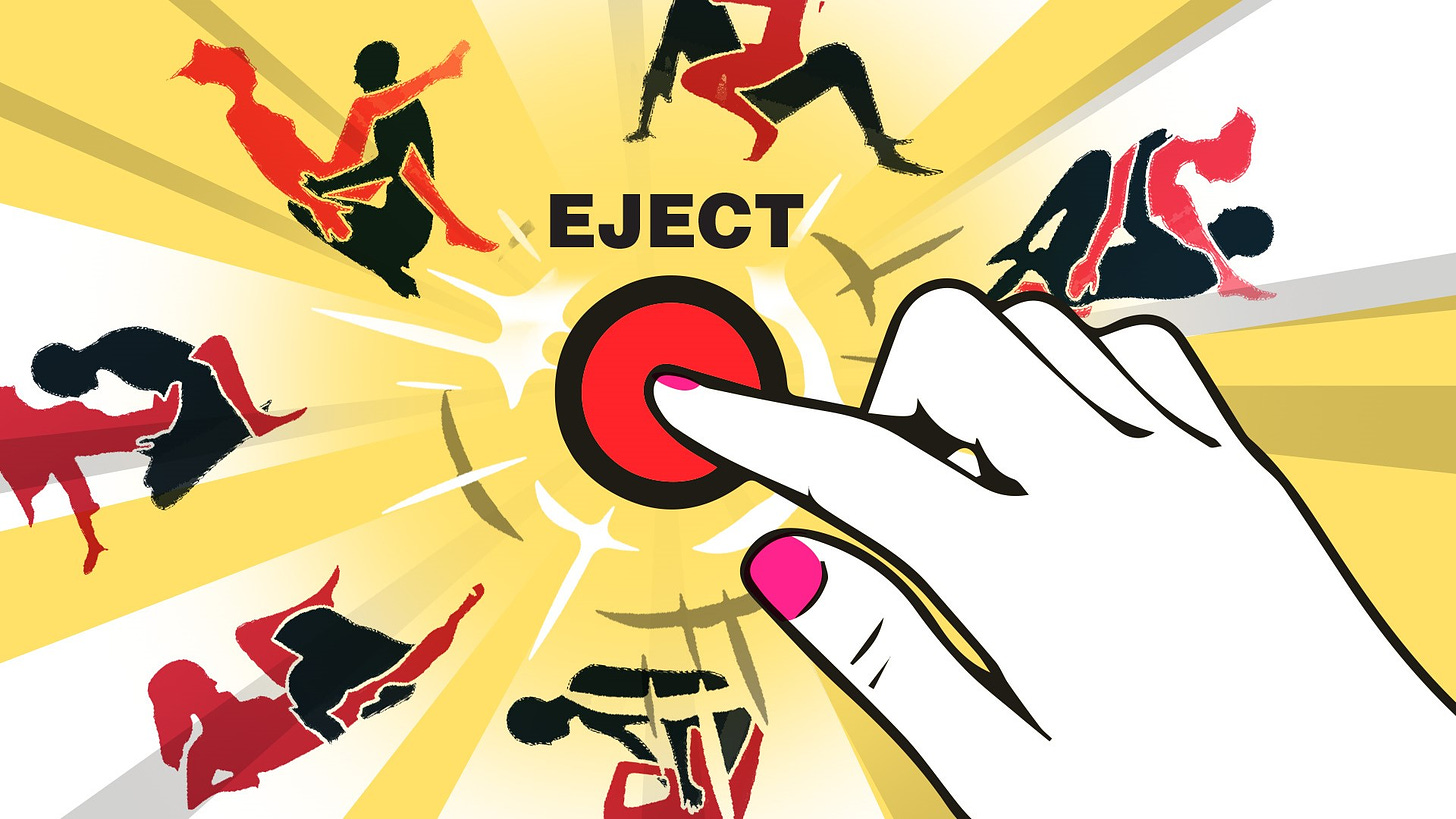APRIL 23, 2024
There have been few feminist projects more irrational and unfair to men than the bundle of consent laws got up around Australia. Fundamentally, the laws say with punitive clauses that if a woman says ‘no’ while the sex act is underway, the man must immediately stop what he is doing – no matter what. In the article below, Bettina Arndt convincingly argues the insanity and nastiness of it all. What do I think?
At the risk of having the feminist thought police at the door, I think that once the act is underway – that is, the woman has allowed penetration – that’s consent enough. If for some perverse reason, the woman suddenly wants to stop, then good luck. If the man completes the gargantuan task of stopping, well and good. Otherwise …
That’s the experience of the ages.
*****
Coitus interruptus
– When a woman presses the eject button, men can’t be expected to immediately withdraw, says human factors science.
BETTINA ARNDT, 1 FEB 2024

Frozen, Disney’s highly successful animation series, captivated little girls across the world. So too, the feminists have had huge success in promoting their own version of “frozen” – instilling in criminal courts everywhere the notion that rape victims often suffer a physiological state known as “tonic immobility” which renders them incapable of resisting their plight.
No matter that the science behind this theory is problematic – as Emily Yoffe explained in her article on bad science supporting prosecution of sexual assault. “I froze” has become the uniform description covering every oddity in the rape victim’s behaviour and flawed memory of events – a description that’s invariably accepted, totally unchallenged.
But men’s physiology is seen as irrelevant. There’s zero interest in examining men’s capacity for response in varied sexual situations let alone any pressure for science on male bodily processes to be considered in criminal investigations and proceedings.
Yet this issue is central to determining guilt or innocence in a critical area of criminal law – the issue of revoked consent. With the introduction of affirmative consent laws, not only is consent required throughout sexual activity, but women have the right to pull the plug whenever they feel like it. And men are expected to immediately snap to attention and withdraw.
Easier said than done, you might say. Well, that’s the issue. Most judges seem to assume that there’s no problem in expecting an immediate retreat from the male in response to the female red flag. Never any consideration of whether he even noticed the flag, or realised what it was, or whether she was waving it clearly, or maybe that he might have been frozen, rendered immobile due to surprise and shock.
There’s a fascinating article on the legal issues at play here – Consent Interruptus: Rape Law and Cases of Initial Consent, by University of Western Australia law lecturer, Theodore Bennett. He spells out the legal arguments resisting any notion of allowing a reasonable time to withdraw after revoked consent, with feminists objecting that this “primal urge’ argument perpetuates the myth of the unstoppable male who can’t be responsible for his rampant sexuality. Kansas State feminist scholar Lois Pineau says the claim that men don’t have immediate control is “factually unfounded.”
Not so fast, says an expert in Human Factors and Ergonomics (HFE) – which is the science of how humans behave and interact with each other in various environmental contexts. I’ll call this Australian expert “Anton Crabtree” – unfortunately he’s decided he needs to disguise his identity due to the tricky ideological climate in today’s academic world.
Dr Crabtree also has expertise in aviation medicine which is precisely the area we usually associate with HFE, given its vital role in investigations of human error in situations like plane crashes. Crabtree makes a compelling case that this type of examination of neurocognitive and physiological limitations also has bearing on whether men crash and burn in the bedroom.
“The absence of the rigorous assessment and well-established scientific considerations of Human Factors analysis is a glaring omission to any claim of a fair system of justice for persons accused of sexual assault after revoked consent. Ignoring the science inevitably risks further miscarriage of justice which can be catastrophic to individuals and families and damaging to society,” writes Dr Crabtree in an academic paper he is preparing for publication on the subject, which examines case law revealing this ongoing deficiency in our justice system.
I’m including a draft of this groundbreaking research article here and hope you will help circulate it and ensure it receives proper attention – particularly in legal circles where there is such a dire need for education to address the ongoing injustice occurring in these cases. This research should also have a place in the sexual consent courses being taught in our schools and universities.

